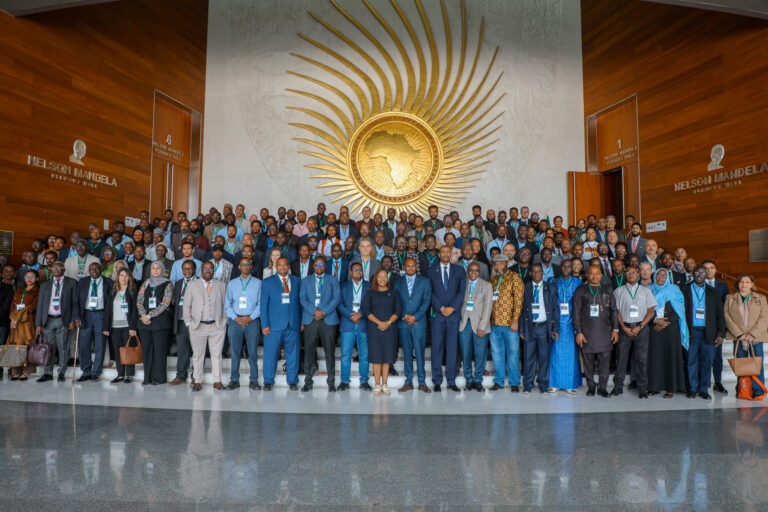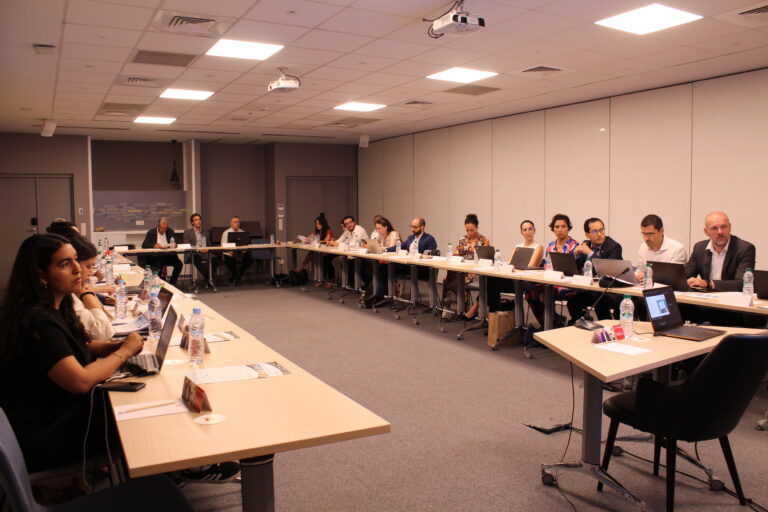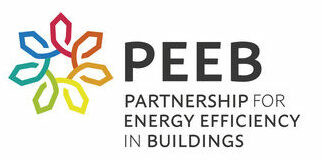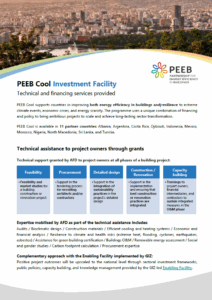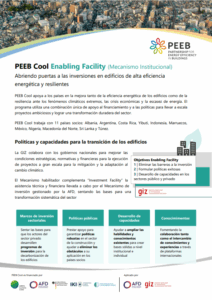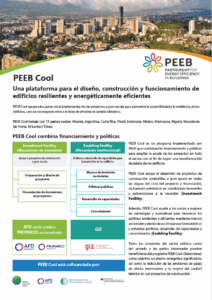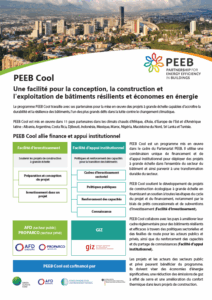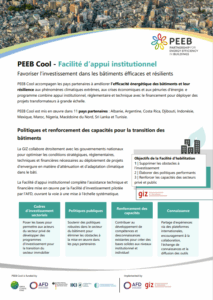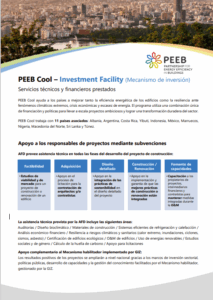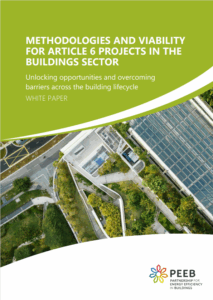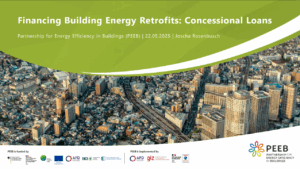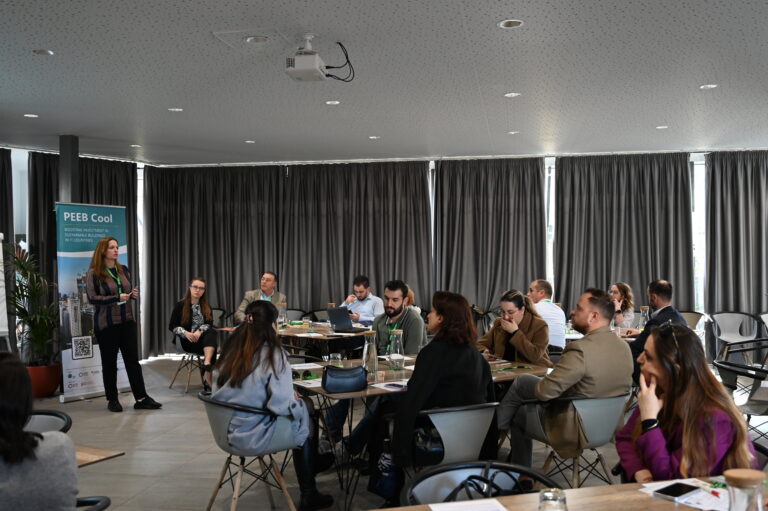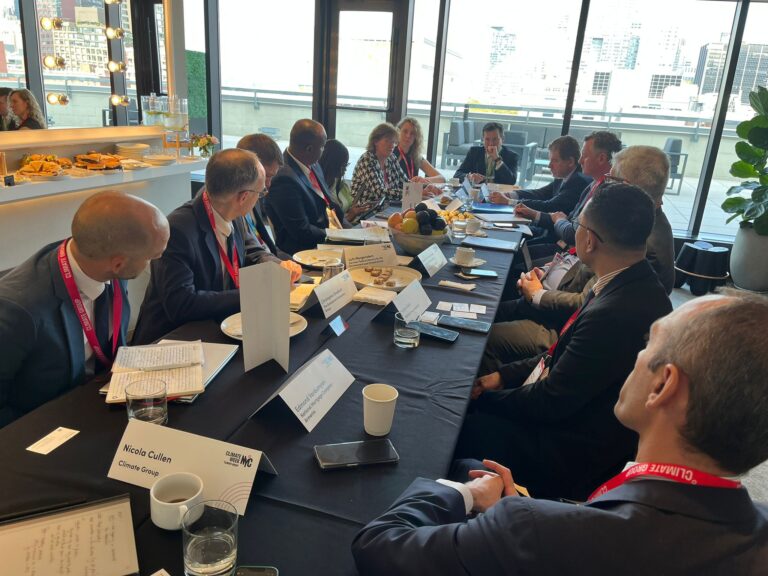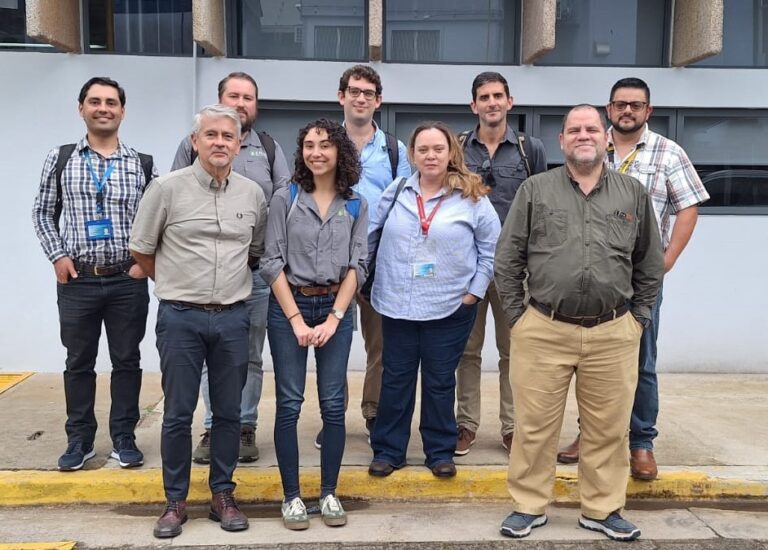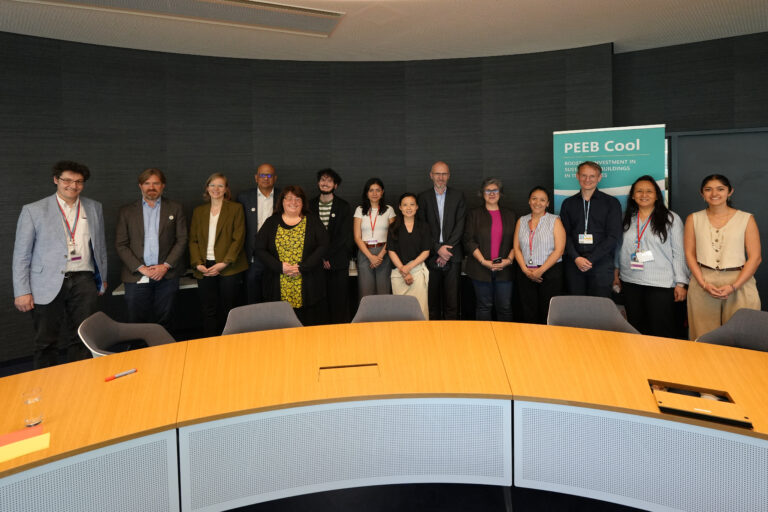Peeb Cool
Boosting investment in sustainable buildings in 11 countries
CONTEXT
The sustainability and resilience of the built environment are one of the greatest challenges in tackling climate change. Buildings are responsible for almost 40% of energy-related greenhouse gas emissions and energy use for space cooling is expected to double by 2040. Countries urgently need to reduce their climate-changing emissions and adapt to increasing temperatures and other climate impacts on people’s lives.
PEEB Cool’s mission is to help countries in hot climates transform their buildings and construction sector by advancing resilient and energy-efficient building design, construction and operation.
PARTNER COUNTRIES
PEEB Cool will support 11 partner countries in hot climates across Africa, Asia, Eastern Europe and Latin America to improve energy efficiency in buildings and resilience to shocks such as extreme climate events, economic crises and energy scarcity.
PEEB Cool partner countries are Albania, Argentina, Costa Rica, Djibouti, Indonesia, Mexico, Morocco, Nigeria, North Macedonia, Sri Lanka and Tunisia.
OUR WORK
PEEB uses a unique combination of financing and policy to bring ambitious projects for energy efficiency and resilience to scale and achieve long-lasting sector transformation.
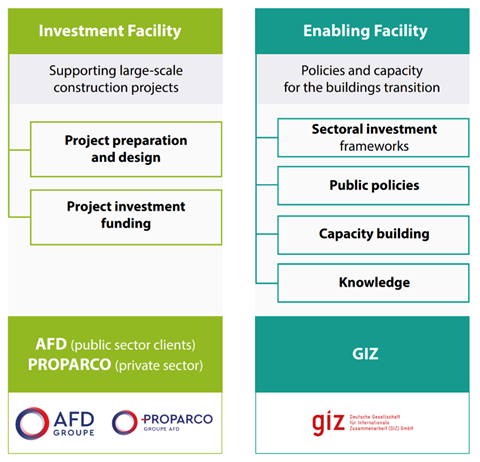
1. Investment Facility
PEEB Cool’s Investment Facility is implemented by AFD Group and offers financing and technical assistance to public and private project owners incorporating bioclimatic design and ambitious energy efficiency targets.
Technical assistance, financed through grants, can be provided at different stages of the project:
- At feasibility stage, to review plans and make recommendations on buildings design.
- At construction stage, to supervise the construction.
- At operation and maintenance stage to strengthen the capacities of project owners and ensure proper building management.
Eligibility criteria for investment financing can be found here:
peeb.build/wp-content/uploads/2024/12/PEEB-Cool-Eligibility-Criteria.pdf
2. Enabling Facility
PEEB Cool’s Enabling Facility is implemented by GIZ to foster an enabling framework for low emissions and climate resilient buildings. Investment frameworks will foster action in specific sectors such as health or residential buildings. It supports the transformation of the buildings sector towards green buildings through sectoral framework, policies, and trainings, and international networks and knowledge with these objectives:
- Private sector actors are enabled to work towards building sector transformation.
- Policy proposals prepare the ground for building sector transformation.
- Capacity-building strengthens local actors.
- Programme experience supports the global building sector transformation.
Eligibility criteria for investment financing can be found here: PEEB-Cool-Eligibility-Criteria.pdf
FINANCING
The Green Climate Fund contributes around 220 million EUR for concessional loans and technical assistance grants to scale-up PEEB’s financing, policy support and capacity-building activities.
AFD co-finances with 5 million EUR as project assistance grants, and the German Federal Ministry for Economic Affairs and Climate Action of Germany (BMWK) contributes 2.5 million EUR as grants for policy support and international awareness.
The concessional loans will leverage an estimated amount of 1,111 million EUR of loans from AFD. The co-financing mix of investment loans from GCF and AFD as part of Component 1 will allow project owners from beneficiary countries to raise the financial barrier of financing sustainable and resilient buildings within their construction or renovation projects.
The grants from technical assistance are separated between operational technical assistance for projects (EUR 26.8 million, Investment Facility) and institutional technical assistance (EUR 21.5 million, Enabling Facility).
EXPECTED RESULTS
It is expected that PEEB Cool contributes to:
- 1,562,759 tCO2eq saved
- 1.13 million people with better thermal comfort in buildings
- 27,000 jobs created
- 233,267 MWh of energy saved per year
Activities
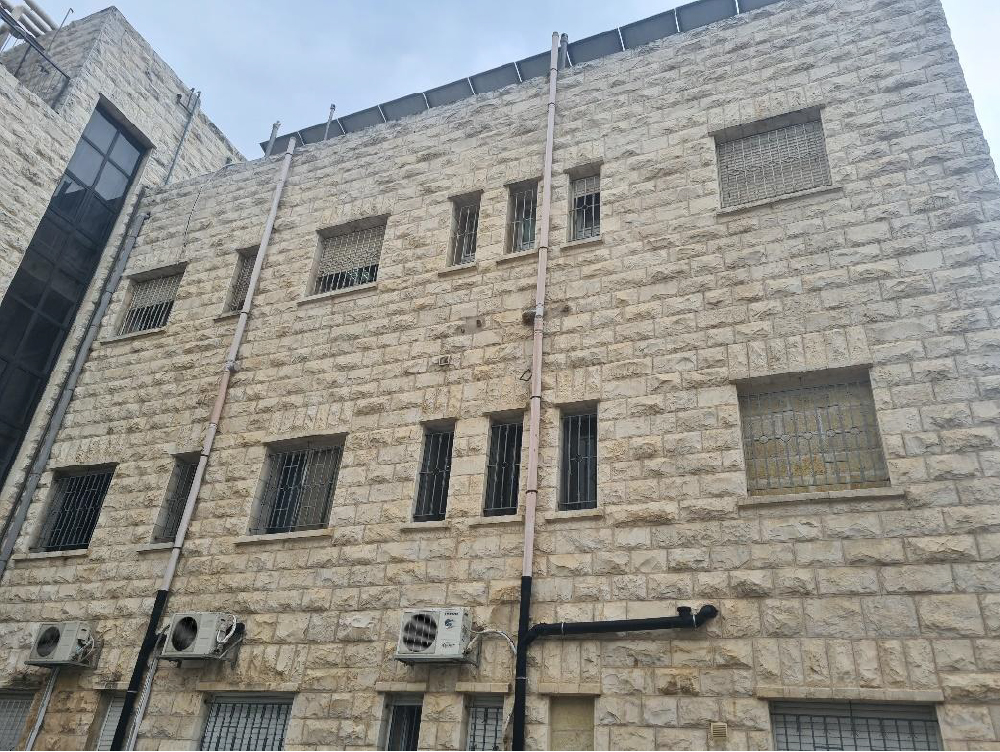
A model hospital for health and climate
A model hospital for health and climate
📍 Saint Joseph, Palestinian Territories
🛠️ Investment Grant
In the Palestinian Territories, PEEB is supporting the renovation of St. Joseph Hospital. Hospitals are intensive energy consumers due to their high activity levels, large staff, patient and visitor numbers, and the energy demands of specialized equipment. PEEB Med is supporting this project with a €1 million grant to ensure energy-efficient upgrades aligned with climate resilience goals.
The hospital’s energy consumption is expected to drop by 57%—equivalent to the annual consumption of roughly 405 Palestinian households!

Sustainable tourism and hospitality centers
Sustainable tourism and hospitality centers
📍 Tunisia
🛠️ Technical assistance
In Tunisia, PEEB supports the renovation of four tourism and hospitality training centers in Sousse Nord, Monastir, Tozeur, and Ain Draham.
PEEB Med supports the renovation of these schools by providing a technical assistance that will focus on energy efficiency. More specifically, it has conducted an energy audit and has provided recommendations for energy-efficient equipment and renovations, proposals for autonomous energy production systems, and best practices to optimize equipment use, particularly in the cold chain.
Expected impacts
people with better thermal comfort in buildings
tCO2eq saved
jobs created
News
